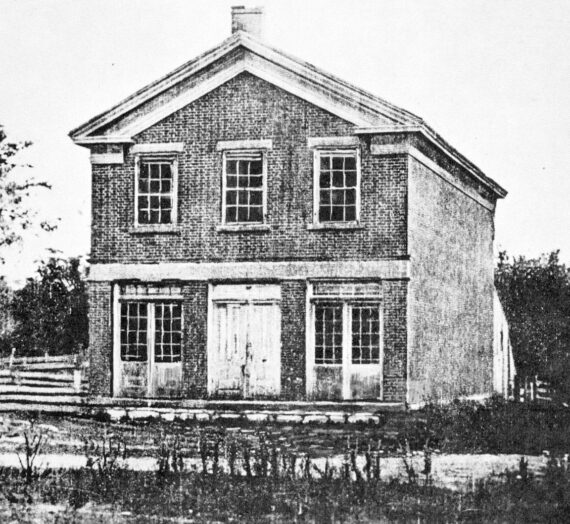Matt Bowman’s article on the growing movement of people who assert that Joseph Smith fought, rather than originated, polygamy hit on an important and underestimated sea change occurring in Utah and the broader “Mormon type” communities and conversations, but missed the actual reasons for the growth of the movement, and its implications.
The reason the movement exists, and is growing so quickly, is primarily because of the huge amount of information that has become available and easily accessible to the public. The Joseph Smith Papers Project allows access to thousands of original documents from Joseph Smith’s lifetime, of which many have taken full advantage. People have been amazed to learn, from first-hand evidence, that not only did Joseph Smith (along with Emma, his wife, and Hyrum, his brother) never say anything in support of polygamy, but there are dozens of unequivocal statements and efforts he made against it that they had never seen before.
In addition, there is extensive evidence of documents and statements being altered or excluded by early Utah church historians, to shape their own narrative. One example is the October 5th, 1843 entry in Joseph Smith’s “journal,” which went through a series of documented edits that changed it from an unequivocal condemnation and prohibition of polygamy, “Joseph forbids it. and the practice ther[e]of— No man shall have but one wife,” to a statement of authorized support. (The text was changed to, “Gave instructions to try those persons who were preaching, teaching, or practicing the doctrine of plurality of wives; for according to the law I hold the keys of this power in the last days, for there is never but one on Earth at a time on whom the power and its keys are conferred— and I have constantly said no man shall have but one wife at a time, unless the Lord directs otherwise.”)
Another major reason for the growth of the movement is the revelation that DNA testing (conducted by Ugo Perego) has ruled out all of the best cases of a possible polygamist child, leaving most to conclude that Joseph Smith had no children with anyone but Emma (who was pregnant with their 11th child at the time of his death.) The evidence people assumed existed for Joseph’s polygamy, along with the justifications they were taught of why polygamy was “necessary” (to raise up seed, to provide for widows, because there were too many women, etc.) have all fallen apart, leaving people open to new evidence and new narratives.
There are additional reasons people are becoming less convinced by the traditional narrative, such as the fact that the William Clayton Nauvoo journals, the one possible piece of contemporary evidence of Joseph’s polygamy, have never been released by the church, despite all of Clayton’s other journals being readily accessible, and despite the 2017 announcement that they would be released, with nothing said since then. In addition, people have learned about things like the canonized statement on Marriage that prohibited polygamy in the church, the fact that section 132 was not presented until 8 years after Joseph’s death, that the earliest claims of any women being married to Joseph did not come until 25 years after his death, and much more.
The historical community, who do generally support the traditional narrative of Joseph Smith’s polygamy and have not seen any viable reasons to question it, have yet to deal effectively or convincingly with most of this information and evidence, leaving people to see their narratives as outdated and unreliable. At the same time, researchers such as Whitney Horning, author of Joseph Smith Revealed, Michelle Stone of the YouTube channel 132 Problems, and Rob Fotheringham, previous church employee, and others have made information like this even more broadly accessible, and introduced tens of thousands of people to this new perspective.
The implications of this growing movement feel threatening to people in various camps. Some members of the Church of Jesus Christ of Latter-day Saints worry that the idea that Brigham Young, not Joseph Smith, was responsible for polygamy may weaken people’s faith in the institutional church. At the same time, many people who have left the church, and made major life decisions, based at least in part on their understanding of Joseph Smith’s polygamy, are hesitant to consider a new narrative that may provide some redemption to a man they have come to think of as quite a villain.
All of this opposition from various sides leaves people following and considering these ideas in interesting and sometimes challenging positions. Despite the growing and viable evidence, they are rejected by many as “conspiracy theorists” and “flat earthers.” The stakes are even higher for active members of the church who hold and share these views. Religious opposition to their ideas is heating up, leaving many to worry that their temple recommends, and for some even their church membership, may be rescinded. In fact, there have already been dozens of excommunications over this topic. Time will tell where this conversation will go, but one thing seems fairly certain, it isn’t going away anytime soon.
*This article was written by Michelle Brady Stone, the operator of the 132 Problems YouTube channel and the 132Problems.org website.


